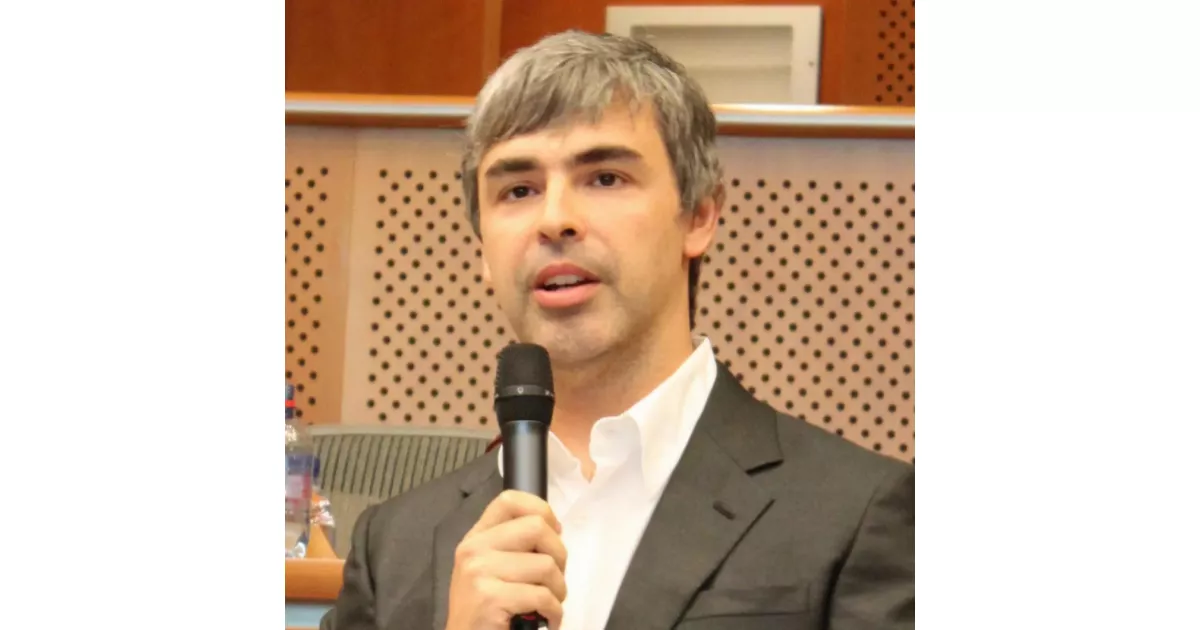Larry Page is an American entrepreneur and computer scientist who co-founded Google with Sergey Brin. He is highly regarded for his contributions to technology and innovation, particularly in search engines and internet services. Page played a pivotal role in Google's rise to become one of the world's most influential technology companies.
March 26, 1973: Birth of Larry Page
Lawrence Edward Page was born on March 26, 1973. He would later become an American businessman, computer scientist, and internet entrepreneur best known for co-founding Google with Sergey Brin.
1975: Montessori School Education
From 1975 to 1979, Larry Page attended Okemos Montessori School (now Montessori Radmoor) in Okemos, Michigan, from ages 2 to 7.
1979: End of Montessori Education
In 1979, Larry Page completed his early education at Okemos Montessori School.
1979: Early Computer Experience
In 1979, when Larry Page was six years old, his father brought home an Exidy Sorcerer computer, which Larry soon mastered and began using for schoolwork.
1991: High School Graduation
Larry Page graduated from East Lansing High School in 1991.
1993: Innovative Projects at University of Michigan
In 1993, while at the University of Michigan, Larry Page created an inkjet printer made of Lego bricks, served as president of the Beta Epsilon chapter of the Eta Kappa Nu honor society, and was a member of the University of Michigan Solar Car team.
1995: Bachelor's Degree
In 1995, Larry Page received a Bachelor of Science with honors in computer engineering from the University of Michigan.
August 29, 1996: BackRub Statistics
On August 29, 1996, the BackRub project, which would later become Google, already exhibited the rudimentary functions and characteristics of a search engine.
1997: Initial Appointment as Google CEO
In 1997, Larry Page was appointed the CEO of Google, a role he initially held until August 2001.
1998: Incorporation of Google, Inc.
In 1998, Larry Page and Sergey Brin incorporated Google, Inc. with the domain name 'Googol'. Page became CEO and Brin was named Google's president.
1998: Realization of Google's Potential
In 1998, Larry Page and Sergey Brin realized the potential of their project, Google, as it began handling 10,000 searches a day.
1998: Master's Degree
In 1998, Larry Page received a Master of Science in computer science from Stanford University.
1999: Server Experimentation
In 1999, Larry Page experimented with smaller servers to make Google more efficient, ultimately leading to a faster search engine.
2000: Office Move to Mountain View
By the start of 2000, Google had moved into a Mountain View office with a US$1-million loan from friends and family.
March 2001: Pressure to Step Down as CEO
In March 2001, investors Kleiner Perkins and Sequoia Capital pressured Larry Page to step down as CEO in exchange for a $50 million investment. They believed Google needed a more experienced leader. This led to Eric Schmidt's appointment as CEO, with Page transitioning to President of Products.
August 2001: First Resignation as CEO
In August 2001, Larry Page stepped down as CEO of Google in favor of Eric Schmidt. This marked a significant shift in the company's leadership.
2001: Attempt to Fire Project Managers
In 2001, Larry Page, in his first tenure as Google CEO, attempted to fire all project managers. He aimed to have engineers report to a VP of engineering, who would report directly to him, believing that non-engineers lacked the technical knowledge to supervise engineers.
2003: Feature Story by Mark Malseed
In 2003, writer Mark Malseed published a feature story on Larry Page, highlighting various aspects of his life and career.
August 20, 2004: Google's Initial Public Offering (IPO)
On August 20, 2004, Google went public under Eric Schmidt's leadership. Though not CEO, Page played a crucial role in key decisions and gave final approval on hires. He also provided the IPO signature, becoming a billionaire at 30.
2004: Marconi Prize Award
In 2004, Larry Page, along with co-writer Sergey Brin, received the Marconi Prize for their creation of PageRank, a search ranking algorithm for Google.
February 18, 2005: Purchase of Historic House
On February 18, 2005, Larry Page purchased a 9,000 square feet Spanish Colonial Revival architecture house in Palo Alto, California. The historic house, designed by Pedro Joseph de Lemos, featured intricate stucco work and stone and tile elements, and was listed on the National Register of Historic Places.
2005: Acquisition of Android
In 2005, Larry Page spearheaded the acquisition of Android for $50 million, a decision made without Schmidt's prior knowledge. Page's goal was to make handheld computers with Google access available to consumers.
2007: Marriage to Lucinda Southworth
In 2007, Larry Page married Lucinda Southworth on Necker Island, owned by Richard Branson. Southworth is a research scientist, and the couple has two children, born in 2009 and 2011.
September 2008: Launch of the First Android Phone
September 2008 marked the launch of T-Mobile G1, the first phone using Android software. This followed Page's 2005 acquisition of Android for $50 million, a move driven by his vision of ubiquitous Google access.
2008: Best Advice Received
In 2008, Larry Page recalled that his supervisor Terry Winograd's encouragement to explore the mathematical properties of the World Wide Web was the best advice he had ever received.
2009: Construction of Ecohouse
In 2009, Larry Page began building an ecohouse in Palo Alto by purchasing and deconstructing adjacent properties. The house was designed to minimize environmental impact, featuring elements like recycled materials, solar panels, and a roof garden.
2010: Android Surpasses Apple in Market Share
By 2010, Android phones accounted for 17.2% of the handset market, surpassing Apple for the first time. This milestone solidified Android's position as a leading mobile operating system.
January 2011: Announcement of Page's Return as CEO
In January 2011, Google announced Larry Page's return as CEO, marking the end of Eric Schmidt's tenure. Some described the preceding decade as Page's "lost decade," where he was influential but less engaged.
January 20, 2011: Schmidt Announces End of Tenure as CEO
Eric Schmidt humorously announced the end of his time as Google CEO on January 20, 2011, with a tweet stating, "Adult-supervision no longer needed."
April 4, 2011: Page's Second Tenure as Google CEO Begins
On April 4, 2011, Larry Page officially returned as Google's CEO, succeeding Eric Schmidt, who became Executive Chairman. At this point, Google had a market capitalization exceeding $180 billion and over 24,000 employees.
April 2011: Return as Google CEO
In April 2011, Larry Page returned as the CEO of Google, leading the company through another phase of growth.
June 2011: Rollout of "Project Kennedy" Design Changes
From June 2011 onwards, Google progressively implemented the design changes from "Project Kennedy," focusing on simplicity, cleanliness, and user-friendliness, reflecting Page's vision for a unified user experience.
August 15, 2011: Page's Blog Post on Motorola Acquisition
On August 15, 2011, Larry Page explained the rationale behind Google's $12.5 billion Motorola Mobility acquisition in a blog post. He cited the need to protect Android from patent lawsuits, particularly from companies like Apple and Microsoft.
2011: Purchase of Superyacht Senses
In 2011, Larry Page bought the superyacht Senses for $45 million. Later, in May 2013, Page revealed that his right vocal cord was paralyzed from a cold contracted the previous summer, with his left cord paralyzed since 1999. He donated over $20 million to vocal-cord nerve-function research.
May 2012: Unveiling of the Chromebook
In May 2012, Google, under Larry Page's direction, launched the Chromebook, a laptop running on Google's own operating system, ChromeOS. This move marked Google's entry into the hardware market.
January 2013: Completion and Impact of "Project Kennedy"
By January 2013, Google's "Project Kennedy," a design overhaul initiated by Larry Page, was complete. The project, deemed a "design revolution," aimed for a unified and user-friendly experience across Google's products.
January 2013: Page Discusses "10X" Mentality and Design Vision
In a January 2013 interview, Larry Page discussed his "10X" mentality, expecting employees to create products ten times better than competitors. He also shared his vision for a "cohesive vision" for Google's design.
March 2013: Completion of Google's Design Overhaul
By March 2013, Larry Page's redesign initiative, codenamed "Project Kennedy," resulted in the shutdown of over 70 Google products and a significant overhaul of the remaining ones, aiming for a unified design.
May 2013: Larry Page's Keynote at I/O Developers Conference
In May 2013, Larry Page delivered a keynote address at the I/O Developers Conference in San Francisco. He emphasized the slow progress in technology due to negativity and zero-sum games, and also mentioned an interoperability issue with Microsoft. Page expressed his interest in Burning Man, an event previously praised by Sergey Brin.
May 2013: Revelation of Vocal Cord Paralysis
In May 2013, Larry Page disclosed that his right vocal cord was paralyzed from a cold he contracted the previous summer, and his left cord was paralyzed since 1999. He donated over $20 million to vocal-cord nerve-function research at the Voice Health Institute.
September 2013: Launch of Calico Initiative
In September 2013, Larry Page launched the Calico initiative, an independent R&D project in biotechnology. The project aimed to innovate in human health, and Art Levinson was appointed as CEO. Page highlighted the impact of illness and aging on families and the potential for long-term improvements in healthcare and biotechnology.
October 2013: Discovery of Autoimmune Disease
In October 2013, it was reported that Larry Page's vocal cord paralysis was caused by an autoimmune disease called Hashimoto's thyroiditis, affecting his ability to participate in Google quarterly earnings calls indefinitely.
2013: Carl Victor Page Memorial Fund Assets
By the end of 2013, the Carl Victor Page Memorial Fund, Larry Page's family foundation, reportedly held assets exceeding $1 billion.
2013: Google Founders Letter
In 2013, Larry Page wrote in his Google founders letter about his childhood home being filled with computers, science and technology magazines, and how this environment fostered his creativity and invention.
October 2014: Major Management Restructure at Google
In October 2014, Larry Page announced a major management restructure at Google. The restructure allowed Page to focus on ambitious projects like Google X and Calico, while Sundar Pichai took over day-to-day product-related decisions. Page continued as the unofficial 'chief product officer.'
November 2014: Donation to Fight Ebola Virus Epidemic
In November 2014, Larry Page and his wife donated $15 million through their family foundation to combat the Ebola virus outbreak in West Africa.
November 2014: Interview About CEO Role
In November 2014, Larry Page stated in an interview that maintaining deep knowledge of Google’s products was a key motivating factor for his team. He emphasized his role as CEO in pushing people ahead and staying updated with the breadth of projects.
2014: Sale of Motorola Mobility to Lenovo
In 2014, Google, under Larry Page's leadership, sold Motorola Mobility to Lenovo for $2.9 billion. This sale, just two years after the acquisition, resulted in a significant loss of $9.5 billion for Google.
2014: Mission Statement Highlighted
In 2014, writer Nicholas Carlson highlighted Google’s mission to 'organize the world's information and make it universally accessible and useful'.
2014: Purchase of Hans Lollik Island
Larry Page acquired Hans Lollik Island in 2014.
July 2015: Transition to Alphabet Inc.
In July 2015, Larry Page became the CEO of Alphabet Inc., Google's newly formed parent organization, marking a significant restructuring of the company.
August 10, 2015: Formation of Alphabet Inc.
On August 10, 2015, Larry Page announced on Google's blog that Google had restructured into a number of subsidiaries under a new holding company named Alphabet Inc. Page became the CEO of Alphabet Inc., while Sundar Pichai took over as CEO of Google Inc.
2018: Purchase of Eustatia Island and Cayo Norte
In 2018, Larry Page purchased Eustatia Island and Cayo Norte.
December 3, 2019: Resignation as Alphabet CEO
On December 3, 2019, Larry Page announced his resignation as Alphabet CEO, with Sundar Pichai taking over the role while continuing as Google CEO. Page and Sergey Brin explained that it was the right time to simplify the management structure as Alphabet and Google operated effectively as independent companies.
December 4, 2019: Stepping Down from Executive Roles
On December 4, 2019, Larry Page and Sergey Brin stepped down from all executive positions and day-to-day roles within Alphabet Inc.. Page remains an Alphabet board member, employee, and controlling shareholder.
2020: Purchase of Tavarua Island
Larry Page bought Tavarua Island in 2020.
January 12, 2021: Medical Evacuation to New Zealand
On January 12, 2021, Larry Page traveled from Fiji to New Zealand via a medevac flight for his son's medical treatment.
August 2021: New Zealand Residency Revelation
In August 2021, it was revealed that Larry Page possessed a New Zealand resident's visa. He had been residing in Fiji with his family during the COVID-19 pandemic.
2023: Subpoena Attempt in US Virgin Islands Lawsuit
In 2023, the US Virgin Islands made multiple attempts to serve Larry Page with a subpoena related to a lawsuit concerning JPMorgan Chase's connections to Jeffrey Epstein.
March 2024: Net Worth in 2024
As of March 2024, Larry Page's estimated net worth was $125 billion according to the Bloomberg Billionaires Index and $122.8 billion according to Forbes, making him the ninth-richest person in the world.
Mentioned in this timeline
Facebook is a social media and networking service created in...
Lego is a line of plastic construction toys created by...
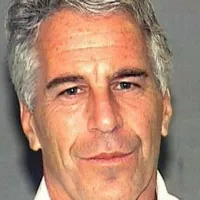
Jeffrey Epstein was an American financier and convicted sex offender...

Google LLC is a multinational technology company specializing in online...
California is a U S state on the Pacific Coast...
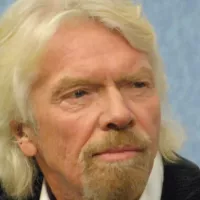
Richard Branson is a prominent English business magnate best known...
Trending
4 seconds ago US-Mexico Military Cooperation: Bipartisan Effort Saves Exercise, Navy SEALs Train, Cartels Targeted.

19 seconds ago Paul Mescal and Gracie Abrams Make Red Carpet Debut at the BAFTAs 2026

2 hours ago Priyanka Chopra stuns in Dior and Gaurav Gupta at 'The Bluff' premiere.
2 hours ago Puerto Vallarta: Vehicle Fires and Roadblocks Disrupt Sunday Morning
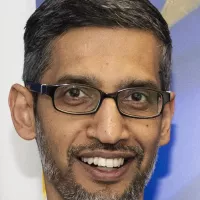
2 hours ago Sundar Pichai envisions AI's transformative potential, focusing on India and global connectivity.
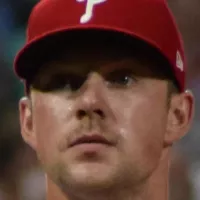
2 hours ago Rhys Hoskins Reportedly Set to Join Cleveland Guardians After Phillies Departure.
Popular

Jesse Jackson is an American civil rights activist politician and...

Barack Obama the th U S President - was the...

Bernie Sanders is a prominent American politician currently serving as...

Ken Paxton is an American politician and lawyer serving as...

Michael Joseph Jackson the King of Pop was a highly...
WWE Raw a professional wrestling television program by WWE airs...
